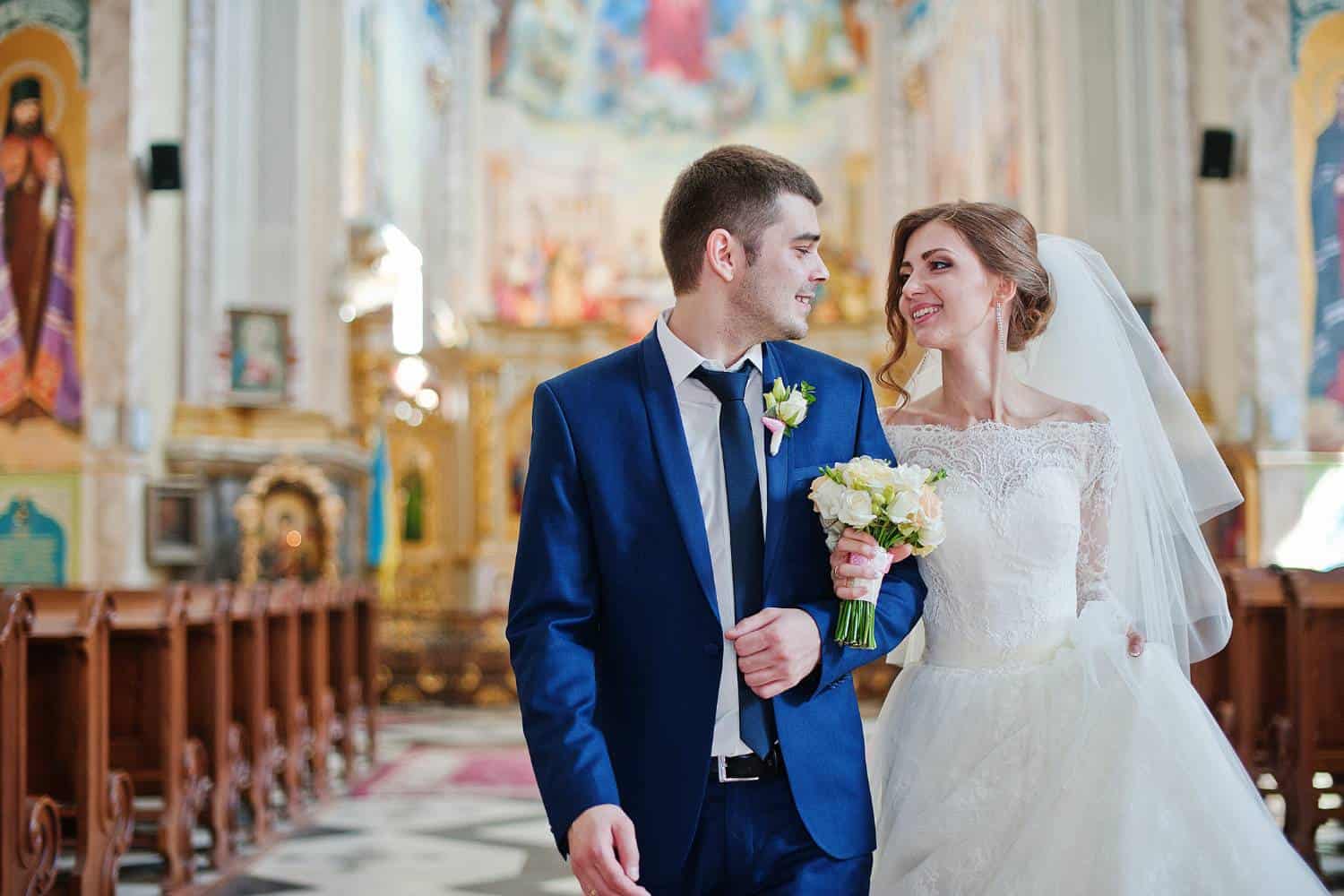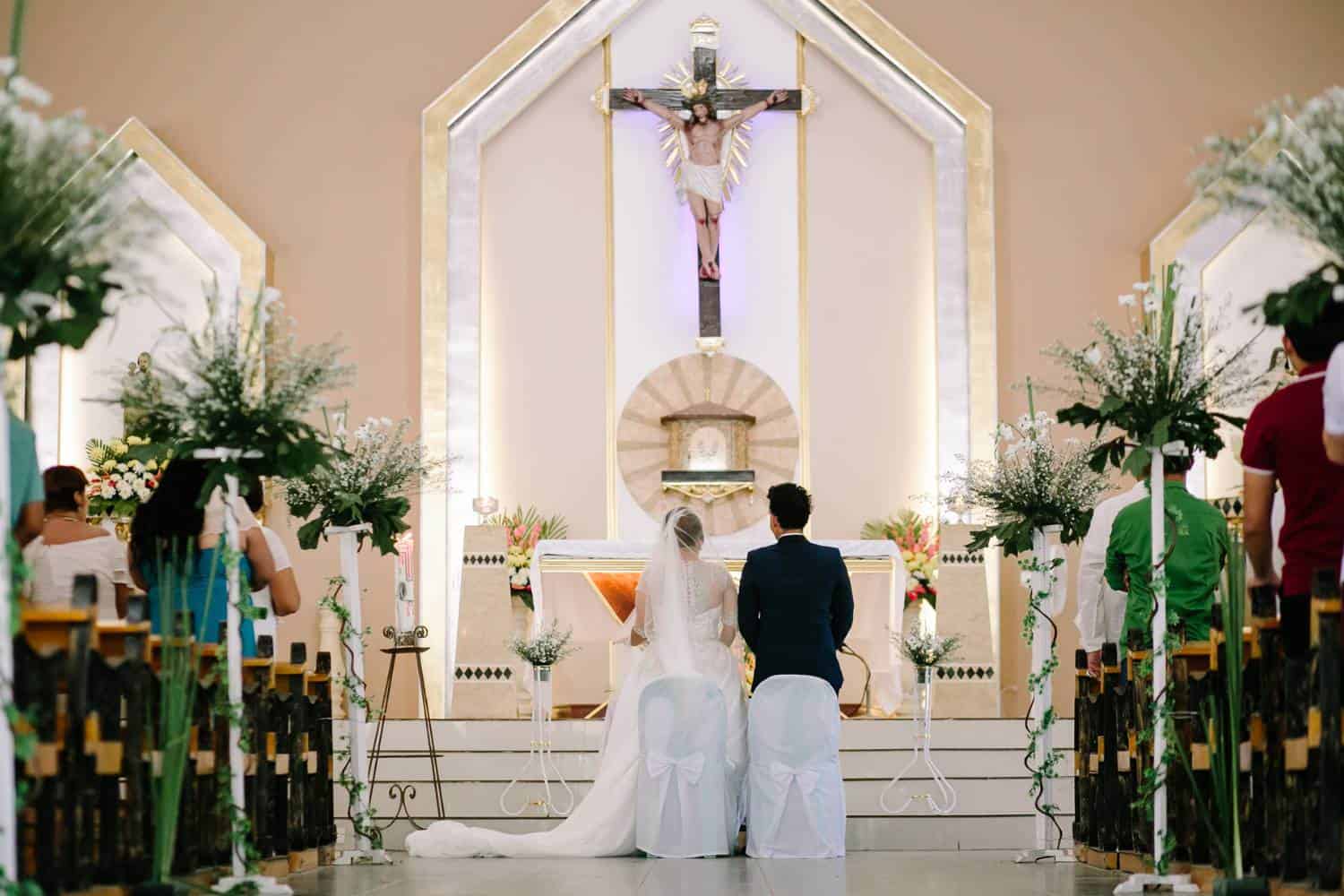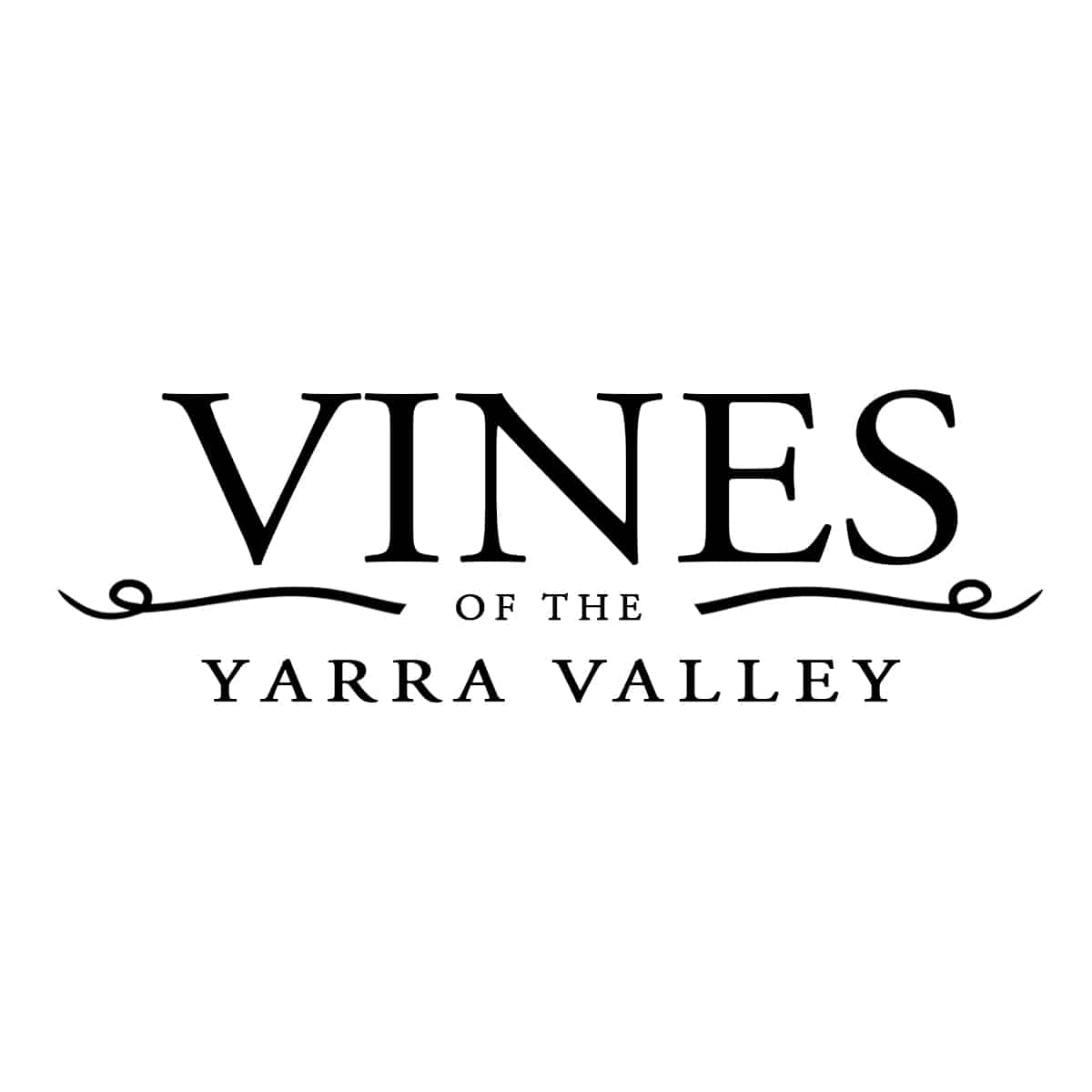Planning a wedding can feel like a huge task, but it doesn’t need to be overwhelming. By breaking down the process and staying organised, you can plan a day that reflects your style and keeps stress to a minimum.
This guide offers practical tips on setting a budget, choosing the right venue, organising your guest list, and much more.
Whether you dream of a grand celebration or a simple gathering, the key is to focus on the details that matter most to you—ensuring your wedding day is a memorable celebration of love.
Let’s get straight to the point.
Planning a hassle-free wedding involves setting a clear budget, choosing a suitable venue, and hiring reliable vendors.
Create a guest list that matches your budget and venue capacity, and pick a wedding date early to organise vendors and send invitations.
Select a theme, décor, and attire that reflects your style, and plan food, drinks, and entertainment that suits the event’s tone.
Organise a timeline, seating arrangements, and transportation to keep the day running smoothly.
Remember to hire a photographer, plan your honeymoon, and stay organised. Focus on enjoying the planning process and celebrating your relationship with loved ones.
Step-By-Step Guide To Planning A Hassle-Free Wedding
Planning a wedding can be both exciting and stressful. With so many details to organise, it’s easy to feel overwhelmed.
However, you can reduce stress and enjoy the journey by breaking the process into manageable steps. Here’s a simple guide to help you plan a wedding that reflects your vision while keeping stress to a minimum.
Set Your Budget
Setting a budget is the first and most important wedding planning step. Your budget will guide every decision, from the venue to catering.
List major expenses like the venue, food, photography, and attire. Allocate funds to each category and track your spending carefully.
Leave some room for unexpected costs—small expenses can add up quickly. With a clear budget, you’ll avoid overspending and keep your planning on track.
Choose A Suitable Venue
Your venue sets the tone for the wedding, so choose carefully. Whether it’s a traditional church, beachside ceremony, or rustic barn, the venue should match your style and fit your guest list. When visiting venues, consider location, capacity, and accessibility for your guests.
Once you’ve found the right venue, book it early. Popular venues fill up fast, especially during peak wedding seasons. Booking in advance gives you plenty of time to organise the other details.
Pick A Wedding Date
Choosing the right wedding date is essential. Consider the time of year, availability of loved ones, and any personal dates that are meaningful to you as a couple.
Some couples prefer a summer wedding, while others might opt for the off-season to reduce costs and avoid crowds.
Once the date is set, send out save-the-dates so your guests can plan. The sooner you finalise the date, the easier it will be to arrange other elements like vendors and catering.
Create A Guest List
Creating a guest list can be challenging. It’s important to balance who you want to invite with what your budget allows. Start with close family and friends, then expand the list based on space and budget constraints.
Your guest list affects venue size, catering costs, and seating arrangements. A smaller, more intimate wedding tends to be more relaxed, but if you prefer a larger gathering, ensure your venue can comfortably accommodate everyone.
Hire Reliable Vendors
Hiring the right vendors is essential for a smooth wedding day. From caterers to photographers, ensure each vendor has a good reputation and fits your budget.
Research vendors early and ask for recommendations from friends or online reviews. Communicate your vision clearly to avoid misunderstandings.
Once you’ve chosen your vendors, get signed contracts early. This guarantees that everyone is clear on expectations and helps prevent last-minute issues.
Plan Your Wedding Theme And Décor
Your wedding theme should reflect your style as a couple. Whether it’s classic elegance, modern chic, or rustic charm, your décor should align with your vision. Choose a colour scheme and style that suits your venue and overall aesthetic.
Focus on key areas like table settings, flowers, and lighting. Small, thoughtful details can have a big impact without overwhelming your budget. Hiryou’redecorator can help with coordination and design if you’re unsure.
Choose The Right Attire
Selecting wedding attire is a personal and exciting part of the bride’s dress, the groom’s suit, the bride’s dress, the groom’s suit, and the party’s outfits.
The party’s outfits should complement the theme and be comfortable for the whole day. Start shopping for attire several months in advance to allow time for fittings and adjustments.
Comfort is just as important as style—choose attire that allows you to move easily and enjoy your day without discomfort.
Organise Invitations
Sending out invitations is more than just providing details. It sets the tone for your wedding and gives guests an idea of what to expect. Ensure the design reflects your theme, whether for formal printed invitations or a digital option.
Arrange Catering And Drinks
Food and drinks are a big part of any wedding. When choosing your menu, consider your budget, guest preferences, and the style of the event. Some couples prefer a formal sit-down meal, while others prefer a casual buffet or food station.
Ensure the menu accommodates dietary restrictions, such as vegetarian or gluten-free options. Decide early on whether to serve alcohol and choose drinks that fit your wedding style.
Plan Entertainment
Entertainment is key to keeping your guests engaged and enjoying the celebration.
Music often plays a central role through a live band, DJ, or playlist. If you’re hiring live performers, meet with them beforehand to discuss song choices and the timeline for the evening.
Consider additional entertainment like photo booths, lawn games, or a surprise performance. Your entertainment should match the overall vibe of the wedding and keep guests entertained.
Create A Wedding Day Timeline
A well-planned timeline ensures the day runs smoothly. Work with your vendors and venue to outline key moments, from the ceremony to the reception. Share this timeline with the wedding party and vendors so everyone knows where to be.
Build some flexibility into the schedule for unexpected delays or spontaneous moments. It’s also helpful to assign a trusted friend or coordinator to keep things on track.
Plan For Photography And Videography
Capturing the memories of your wedding day is something you’ll cherish forever. Hire a professional photographer and videographer to document the special moments.
Meet with them beforehand to discuss your preferences, key shots, and any particular locations you want highlighted.
Include moments beyond the ceremony, like getting ready, candid guest shots, and the reception. These often become some of the most treasured memories.
Coordinate Transportation
Transportation is often overlooked but plays a big role in ensuring everything runs smoothly. Plan transportation, whether it is a stylish car for the couple, a shuttle for guests, or rides between locations.
Ensure your wedding party and key guests know the day’s logistics, such as where and when to arrive. This will help prevent confusion or delays.
Finalise Seating Arrangements
Seating arrangements can be made, but they’re necessary for a smooth reception. Once RSVPs are in, finalise the seating for your guests. Consider grouping people by family, friendship, or shared interests.
A seating chart or place cards can help avoid confusion. Consider how guests will interact and ensure everyone is comfortable.
Plan Your Honeymoon
While focusing on its wedding day is easy, remember to extend your honeymoon.
Whether it’s a local or a grand adventure, your honeymoon should be a relaxing way to celebrate after the wedding. Book travel and accommodation early, especially if you’re leaving after the wedding.
If you’re waitingwaitiyou’releave, research destinations and plan an experience that fits your preferences.
Stay Organised
Staying organised is key to a hassle-free wedding. Create a checklist and break large tasks into smaller steps. Use planning apps, spreadsheets, or a physical planner to track appointments, deadlines, and expenses.
Delegating tasks to trusted friends or family members can also ease the pressure. Involving your partner in planning ensures your ideas are reflected in the final event.
Take Time To Enjoy The Process
Amid all the planning, remember that your wedding celebrates your relationship. Take breaks when needed, celebrate small milestones, and focus on what’s most important—your love and commitment.
While a well-planned wedding is important, what truly makes the day special is creating memories with your partner, family, and friends.
Conclusion
Planning a wedding can be overwhelming, but it doesn’t have to be stressful. Setting a clear budget, staying organized, and focusing on the important aspects can create a perfect day for thatthat’s hassle-free wedding.
It comes down to preparation and flexibility—while also enjoying the moments that matter. With the right approach, your wedding day will be a memorable celebration of your love.
Frequently Asked Questions
What is the most important part of planning a wedding?
34% of couples choose the wedding reception as the most crucial part of their wedding day. This is the largest spend in a couple’s budget and likely the first supplier they will book. Couples continue to opt for quality over quantity when it comes to their guests and venue spending.
What are the biggest expenses for a wedding?
While the average cost of a wedding in 2020 was $20,300, this cost can quickly rise as the wedding becomes more extravagant. The most expensive parts of most weddings are costs associated with the reception venue, including the cost of renting materials, tables and chairs, and serving food or alcohol.
Who pays for the honeymoon?
Traditionally, the groom’s family paid for the honeymoon, but like every wedding, no two couples are alike – and neither are their families. The question of who pays for the honeymoon often depends on family relationships, traditions, and, of course, the couple’s personal preference.
Who pays for the cake at a wedding?
The bride’s parents traditionally pay for the wedding cake and the rest of the wedding reception costs, but you don’t have to follow this historical precedent. Many couples today may pay for their cake, or the two families may split costs for the cake and other desserts.
Is planning a wedding that hard?
It’s a big commitment.
Regardless of how long your engagement is, planning a wedding is a significant investment of your time and energy. There are seemingly endless decisions to be made: the venue, the guest list, THE dress. It doesn’t help that each step can be broken down into many micro-decisions.



